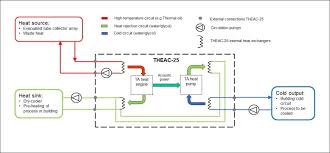
Breaking News
 Maria uses Amazon One to pay at Whole Foods Market
Maria uses Amazon One to pay at Whole Foods Market
 We need to mine 10,000 years of copper in next 18 years
We need to mine 10,000 years of copper in next 18 years
 Goldman's Top Lawyer Departs Amid Revelations About Her Ties to Epstein
Goldman's Top Lawyer Departs Amid Revelations About Her Ties to Epstein
 State of AI in 2026: LLMs, Coding, Scaling Laws, China, Agents, GPUs, AGI...
State of AI in 2026: LLMs, Coding, Scaling Laws, China, Agents, GPUs, AGI...
Top Tech News
 Drone-launching underwater drone hitches a ride on ship and sub hulls
Drone-launching underwater drone hitches a ride on ship and sub hulls
 Humanoid Robots Get "Brains" As Dual-Use Fears Mount
Humanoid Robots Get "Brains" As Dual-Use Fears Mount
 SpaceX Authorized to Increase High Speed Internet Download Speeds 5X Through 2026
SpaceX Authorized to Increase High Speed Internet Download Speeds 5X Through 2026
 Space AI is the Key to the Technological Singularity
Space AI is the Key to the Technological Singularity
 Velocitor X-1 eVTOL could be beating the traffic in just a year
Velocitor X-1 eVTOL could be beating the traffic in just a year
 Starlink smasher? China claims world's best high-powered microwave weapon
Starlink smasher? China claims world's best high-powered microwave weapon
 Wood scraps turn 'useless' desert sand into concrete
Wood scraps turn 'useless' desert sand into concrete
 Let's Do a Detailed Review of Zorin -- Is This Good for Ex-Windows Users?
Let's Do a Detailed Review of Zorin -- Is This Good for Ex-Windows Users?
 The World's First Sodium-Ion Battery EV Is A Winter Range Monster
The World's First Sodium-Ion Battery EV Is A Winter Range Monster
 China's CATL 5C Battery Breakthrough will Make Most Combustion Engine Vehicles OBSOLETE
China's CATL 5C Battery Breakthrough will Make Most Combustion Engine Vehicles OBSOLETE
Electricity-free air con:

Beginning with the principles of the Stirling engine, SoundEnergy's THEAC thermal acoustic engine takes heat – either industrial waste heat or solar heat – and turns it into powerful cooling without requiring any other power source. This completely renewable technology could prove highly disruptive.
The THEAC system uses no mechanical moving parts, no refrigerants, no CO2, no precious metals or materials. Instead it uses Argon gas, which is plentiful and has zero global warming potential, and is totally sustainable, relying solely on the energy of incoming heat to produce cold. The technology is also claimed to make about as much noise as a running shower, and is scalable, way up from the company's 25-kW demo unit, which can produce cooling temperatures as low as -25° C (-13° F).



